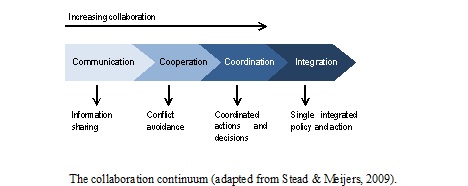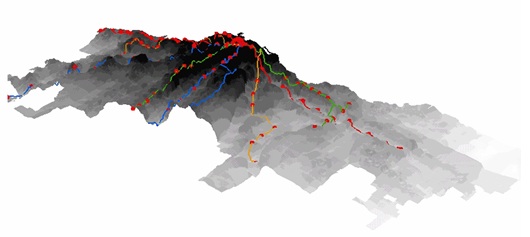RESEARCH:: Policy and Implementation:: Projects
Implementing BRT: The Institutional Dimension 2010-present
How do bus rapid transit (BRT) projects change over time from inception to implementation? What consequences -intended, unintended, expected, unexpected- does the participation (or lack of participation) of stakeholders (such as transport operators or neighborhood groups) have on the effectiveness and legitimacy of the resulting system? This project aims to better understand the choices faced by implementers of BRT projects as they relate to institutional dimensions, and to assess the relative effect of these choices on performance outcomes. We aim to better understand how relevant stakeholders, via public participation processes and contract negotiations, shape the evolution of BRT projects. The research focuses on recent cases of BRT implementation in Latin America, specifically in Mexico City and Santiago de Chile.
MIT students involved: Onesimo Flores (PhD, DUSP)
External Partners: Manuel Tironi (Pontificia Universidad Católica de Chile)
Papers: Costs of Inclusion
Sponsor: Volvo Research and Education Foundation (ALC-BRT), MIT-Chile Pontificia Universidad Católica de Chile Seed Fund
Intra-Metropolitan Cooperation in Portugal 2008-2011
Research undertaken as part of the SOTUR project, the focus was to identify barriers and pathways to inter-Municipal cooperation in metropolitan land use and transportation planning in Portugal. Applying the fiscal federalist lens to the arena reveals a lack of direct and transparent connection between the benefits and costs accruing to metropolitan transportation system users. An experimental assessment of a scenario planning exercise shows little evidence of inducing organizational change towards cooperation, while case studies of inter-municipal cooperation suggest it emerges from combination of positive incentives, ambiguity and flexibility in the institutional system, an external catalyst, and existing inter-organisational networks.
MIT students involved: Joshua Nelson (MCP/MST08), Lisa Rayle (MCP/MST10), Chris Grillo (MCP/MST11)
External partners: Rosário Macário (Instituto Superior Técnico-Lisbon)
Papers: Fiscal federalism and metropolitanism, Testing the rhetoric, The emergence of inter-municipal collaboration
Sponsor: MIT Portugal Program
Private Pathways to Sustainable Metropolitan Mobility? 2003, 2006, 2009-11
Ongoing research attempting to reconcile the use of public private partnerships (PPPs) for urban transportation infrastructure delivery and the needs for metropolitan coordination in pricing and regulation for broader system sustainability. Early work took stock of the use of PPPs, more recent work has focused on metropolitan highway infrastructures.
MIT students involved: Joshua Nelson (MCP/MST08), Chris Grillo (MCP/MST11)
Theses: Grillo
Papers: Private sector in urban transport infrastructure, Private roads to sustainable mobility?
Sponsor: GIZ SUTP, MIT Portugal Program
Capturing the Value for Public Transport Infrastructure Finance 2008-2011
This project aimed to isolate the local-level property value appreciation associated with proximity to mature urban heavy rail transit stations in Chicago. In light of the estimated increased property values, we identify the implications for raising revenues under the current property tax system to support existing rail transit station infrastructure and to help finance system expansion to a new urban development project.
MIT students involved: Shan Jiang (PhD, DUSP), Chris Grillo (MCP/MST11)
Papers: Sustaining Mass Transit…
Sponsor: Lincoln Institute for Land Policy


